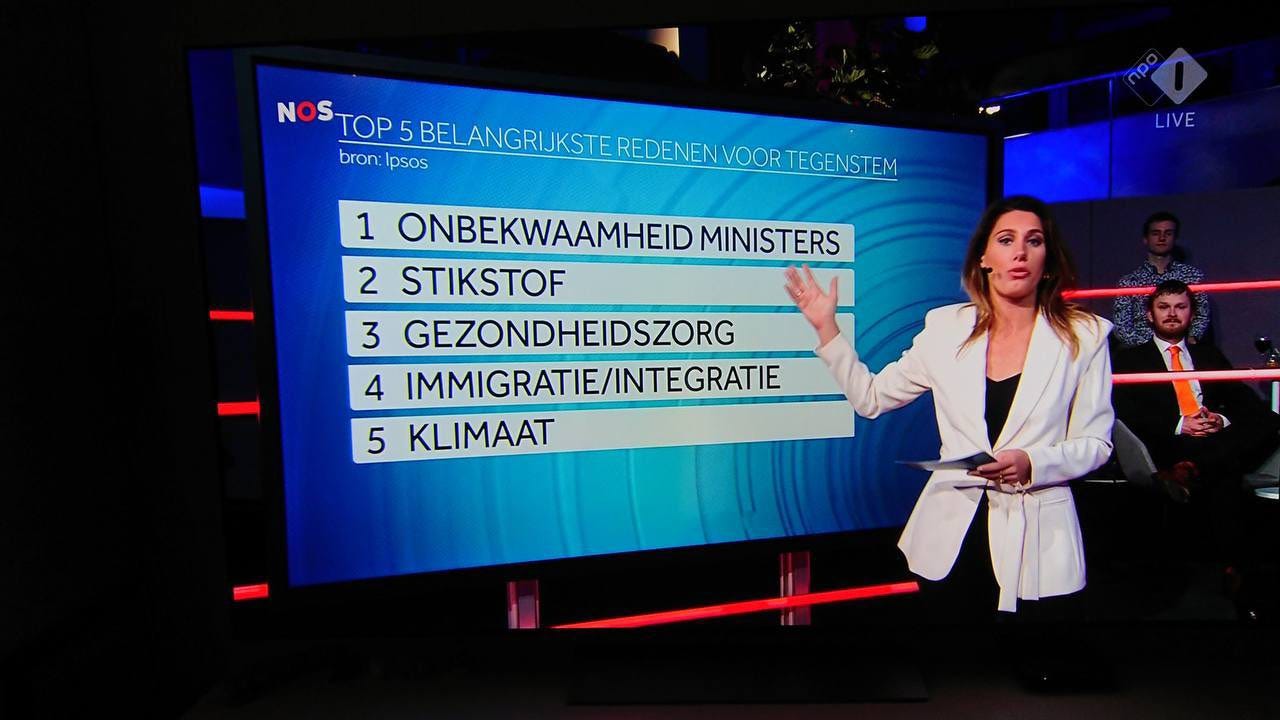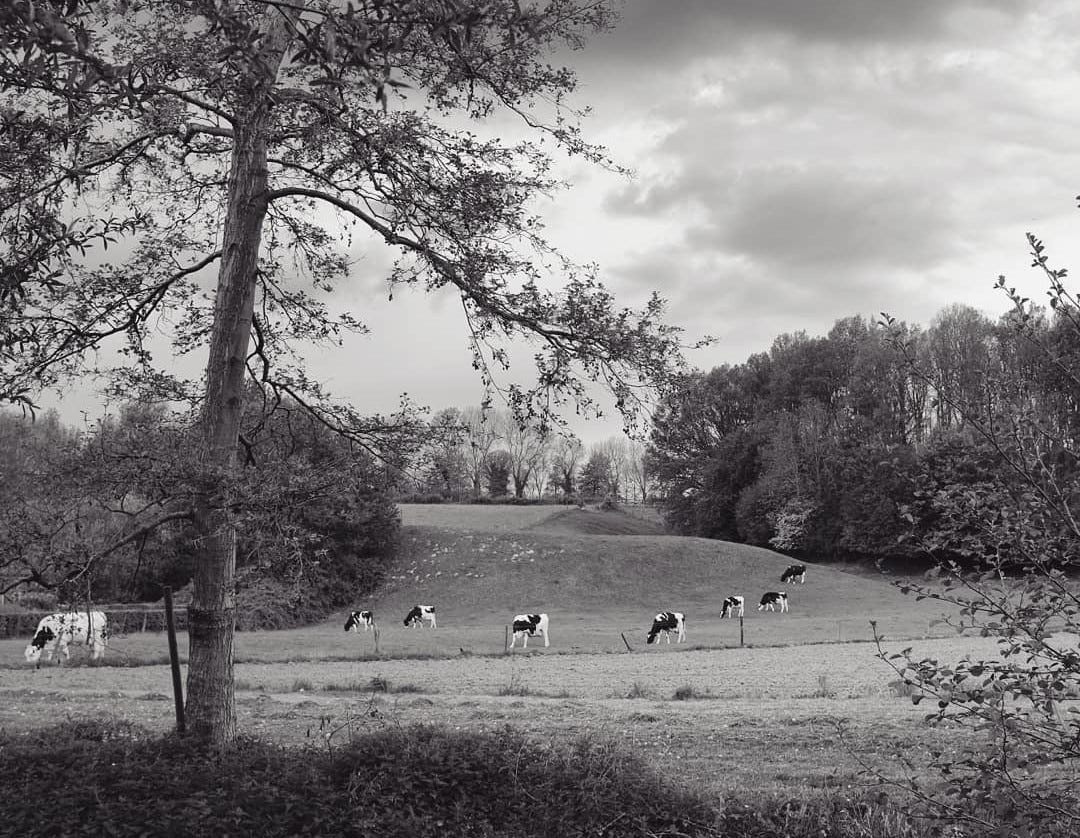Another earthquake
Dutch voters sent a clear and resounding message to The Hague last week: we need a change of direction. Will our insular governing class listen?
We had another earthquake in the Netherlands this past week. The epicenter of this one, however, was not in Groningen, it was throughout the entire country. Nor was it caused by an earthquake — but rather by an election.
On Wednesday 15 March, the country went to the polls to vote for the Senaat, the Dutch Upper House. A relatively new party, the BoerBurgerBeweging (“Farmer-Citizen Movement”) (BBB), hitherto a one-woman faction in the Tweede Kamer, the Dutch Lower House, won a landslide victory by grabbing 17 of the 75 seats in the Senaat (it previously held none), making it in one fell swoop the largest party in this legislative body, thereby torpedoing majority control that the ruling coalition led by Prime Minister Mark Rutte had hitherto enjoyed. The four ruling parties continue to control the more important Tweede Kamer, where the government’s day-to-day legislative business is handled, so Rutte’s fragile coalition remains in power, at least for now.
The state-funded media organization NOS published a page with election results, and the interactive maps make for some interesting study. Here’s a screen capture of the map with the breakdown per municipality:
The olive green are municipalities where the BBB triumphed, and as you can see it is virtually the entire country, the exception being the large cities (Amsterdam, Utrecht, The Hague, Eindhoven, etc) where the Green Party or Mark Rutte’s center-right VVD held sway.
In context of Dutch politics, this was a massive earthquake. Clearly those who turned out for the BBB were far from only disgruntled farmers. On the alternative news channel BlckBox.tv, veteran polling guru Maurice de Hond said last week that the BBB landslide clearly represented a protest vote, with vast swathes of the Dutch electorate “giving a fat middle-finger” to Mark Rutte’s government. BBB leader Caroline van der Plas exudes a certain earthy, no-nonsense charm and authenticity that is almost entirely absent among in today’s political class; whatever limitations the BBB movement may have, it is entirely understandable why she served as the vehicle for growing public discontent with the direction the country is going.
It is by some calculations the most abrupt shift in electoral politics since WWII. Perhaps the biggest loser was the center-right Christian Democrat (CDA) party, which, as in so many Western European countries, dominated the political landscape during the entire postwar era. Except in the more religiously inclined Bible Belt, the CDA has traditionally been the political party of the provincial farming world; its increasingly uneasy alliance with the cosmopolitan center-left, fervently pro-EU D66, which is pushing a radical environmental agenda, has proved to be an utter disaster. Unless the once mighty CDA drastically changes course, it is headed towards extinction.

Independent journalist Syp Wynia commented on what in particular motivated the BBB voters:
A poll by Ipsos for NOS gave some further insight behind the election results. Sixty per cent of voters wanted to send a signal to the current cabinet with their vote. Fourteen per cent still wanted to show support, but for 46 per cent it was disapproval that drove them.
And by their own admission, what did voters dislike? The answer is disconcerting for those in power in The Hague. It covers all the issues on which Rutte’s fourth coalition government is (not) distinguishing itself (nitrogen, immigration, climate), but at the top of the list is 'incompetence of ministers'. It may partly be due to the wording of the question, but the contempt is nonetheless palpable.
“Hoe de Rutte-wolk het deksel op de neus kreeg”, Wynia’s Week, 18 March 2023

This is damning but wholly unsurprising, given the pitiful caliber of recent and current occupants of Cabinet posts, nearly all of whom shine in their mediocrity and conformity. Those who show so much as a trace of character and independence of mind have no place, such as Monica Keizer, who was summarily sacked from her Economic Affairs post for questioning the Covid orthodoxy during the pandemic.
Where do we go from here?
Despite protestations from Christianne van der Wal, Cabinet Minister for Nature and Nitrogen Policy (yes, for real), that “we must stay the course”, that the nitrogen-reduction targets must remain immutable, something will have to give. Syp Wynia observes that the governing coalition will either change course or the governing coalition will collapse and there will have to be new Tweede Kamer elections.
In a piece published by De Andere Krant on the eve of the elections, investigative journalist Eric van de Beek, who has been doggedly pursuing the MH17 case, examined and compared the parliamentary voting records of the opposition parties. He came to the conclusion that the only party that offered consistent opposition to the Cabinet was the rightwing-populist Forum for Democracy (FvD), which was the big protest vote of the 2019 Senaat elections, but this time around fared very poorly, falling from ten to just two seats. In her voting record the Tweede Kamer, BBB’s Caroline van der Plas may have pushed back on the government’s attack on agriculture, but she backed most other policies, including the government’s disastrous support for Ukraine in the ongoing conflict.
There is clearly widespread, ever-growing discontent with the general direction things are going in the Netherlands, with a number of simmering crises, including but certainly not limited to the deeply unpopular war on farming. But the opposition remains incoherent and fragmented, a state of affairs that the ambitious and opportunistic Mark Rutte adroitly continues to exploit.




I regard this election as a super win for common sense
Thx for the article . Great read !!!